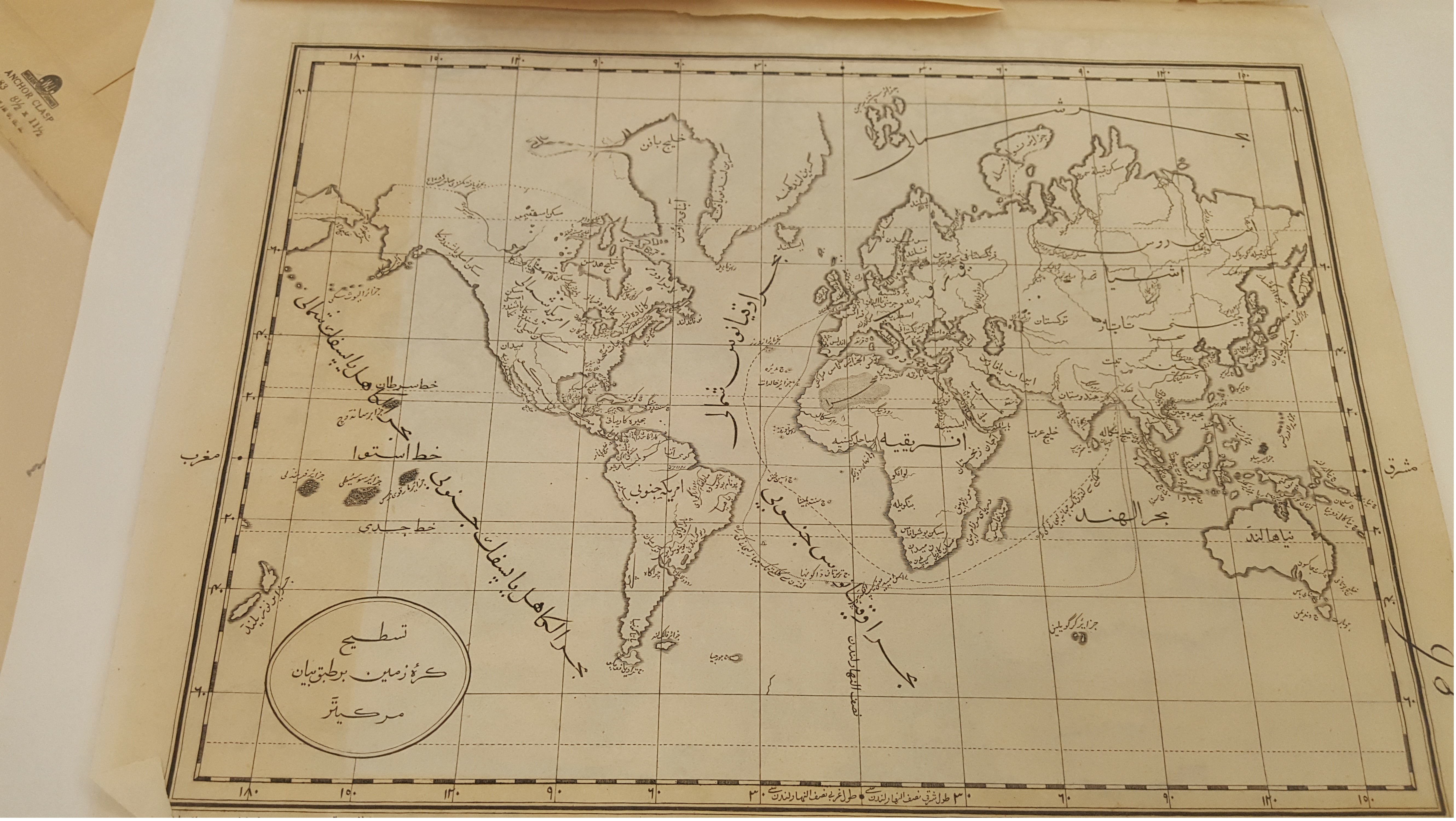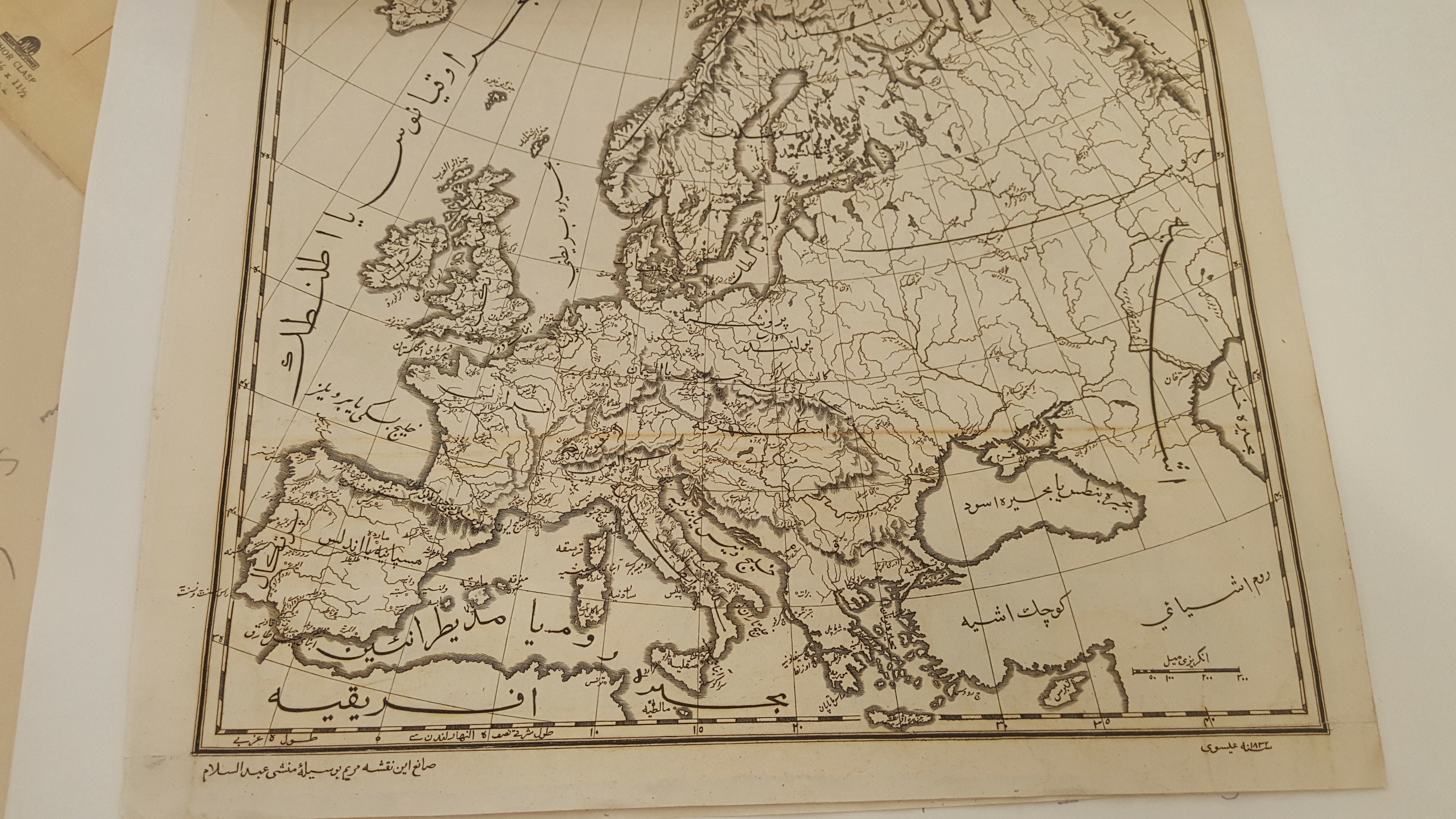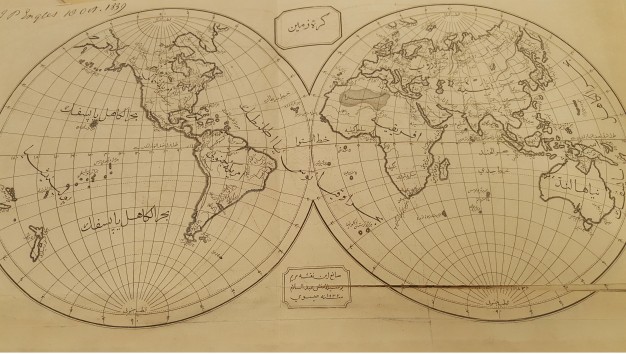[Cataloging] as detective [work]
Not all library items are created equal. Some monographs and maps are straightforward and present little-to-no problems for the Cataloging Department. The more interesting items in libraries usually get placed on what we lovingly call “The Problem Cart.”
Problem Carts can hold any sort of strange and enigmatic item. A recent item on my Problem Cart was a strange 19th-century atlas with no provenance and no imprint information. Normally, the lack of information could easily be overcome. In this case, however, the item in question was in Persian and Arabic.

I contacted the Near East Languages Department at the University of Pennsylvania in order to make sense of the item. The scholars there were able to tell me definitively that the imprint year was 1832 and that the languages used were Persian and Arabic. Using clues, I searched OCLC (WorldCat), hoping that another library has already done the hard work of cataloging this item. Alas, no one seems to have this exact item listed in their catalogs.

It is a sad day in any cataloger’s life when we have to use brackets to describe an item. In a catalog entry, brackets indicate that the information held within is not printed on the item and, therefore, can only be described as an educated guess. In this case, the catalog entry is made up entirely of brackets:
[Atlas of the world], [s.l.] [s.n.] [1832]
The initials “s.l.” stand for “sine loco” (without a place) ; the initials “s.n.” stand for “sine nomine” (without a name).
If any scholars would like to help the Cataloging Department in creating a more complete description of this item, I welcome all feedback.

